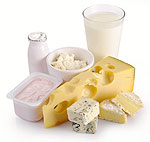 A new study has entered the sticky business of talking positively about trans fats. These ultra-bad fats are, the researchers say, not all equal. And they are pressing for a change in nutrition labels to reflect this — particularly for dairy and beef products. Let’s see what they are talking about.
A new study has entered the sticky business of talking positively about trans fats. These ultra-bad fats are, the researchers say, not all equal. And they are pressing for a change in nutrition labels to reflect this — particularly for dairy and beef products. Let’s see what they are talking about.
In this health news, it was found that natural trans fats produced by animals such as dairy and beef cattle are not detrimental to health. In fact, they may show significant positive health effects. Some evidence even links these natural trans fats to reduced risk of heart disease and cancer.
The evidence, they say, shows why nutrition labels should be altered. As it stands, a large portion of natural trans fats content is included in the overall trans fats calculation, which may be misleading.
In the past 10 years, trans fats have acquired an extremely unsavory reputation. But this study, published in “Advances in Nutrition,” reveals that eating natural trans fats produced by live cattle is different than consuming industrial trans fats. That would be the kind, like partially hydrogenated vegetable oils, used to prepare foods such as baked goods.
By definition, ruminant trans fat is naturally occurring, found in meat and dairy foods. Industrial-produced trans fat is a component of those partially hydrogenated vegetable oils, which have been highly associated with cholesterol and coronary heart disease. There is rising awareness of this difference. Helping consumers would be a big step forward — perhaps starting with labels that separate the two types of trans fat.
According to the review, the naturally occurring trans fat has a different fatty acid profile than industrial trans fat, which contributes to its different effects in the body. Also, the amount of natural trans fat consumed has been relatively stable and much lower than the amounts consumed from partially hydrogenated oils that have been associated with adverse effects.
Based on the promising findings to date, plans for new studies are gaining momentum to further investigate the health implications of natural ruminant-derived trans fats. No doubt the meat industry will be all over this. In fact, the Alberta Livestock and Meat Agency has already earmarked $1.0 million for a study over the next few years.
What we definitely need is to clear the air on this subject. If there are healthy fats that most of us are assuming are unhealthy, then that is a definitive problem.
